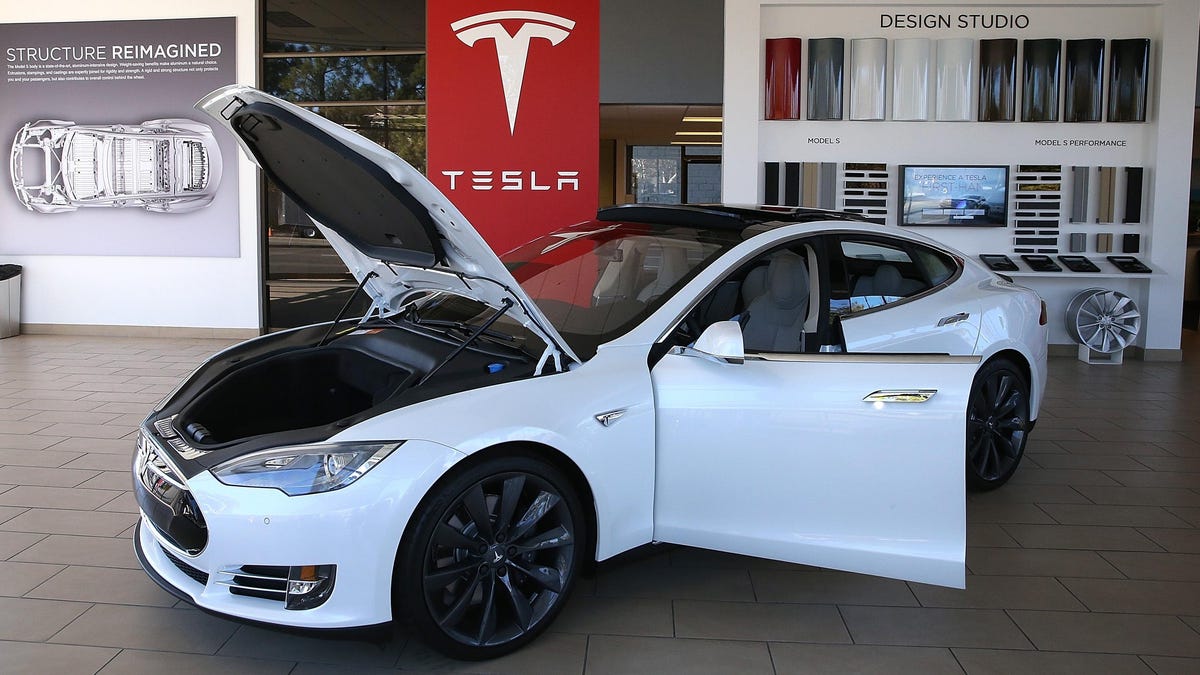
High tech car makers like Tesla offer drivers a taste of the future today with a feature that allows them to rid themselves of the tedious, inelegant shackles of physical car keys, and instead open their winged doors with the modernized simplicity and ease of a phone app. But like all app-based features, that key is only as reliable as the server it’s hosted on.
That was a lesson learned the hard way by Tesla owners spanning the globe from Florida to South Korea who reported a server issue interfering with their phone app’s ability to unlock their vehicles, notes the BBC. At least some of these customers apparently didn’t have access to their key cards and reported being locked out of their vehicles entirely.
Tesla CEO Elon Musk responded to a user experiencing an error with the app on Twitter saying the company “may have accidentally increased verbosity of network traffic,” before apologizing for the outage. Tesla did not immediately respond to Gizmodo’s request for more details about the issue.
At its height, about 500 users reported experiencing an error with the Tesla app on Friday on the outage tracking site Down Detector, according to The Guardian, though it’s unclear how many of those people were using the app to access their vehicles. The incident comes just over a month after another driver recounted a terrifying tale of his Tesla bricking itself in the middle of a six-lane highway.
Though Tesla drivers can also access their vehicles through a key card, some critics, like Birmingham Business School professor and Tesla driver David Bailey, claim users being locked out is partly due to Tesla’s nudging of users towards its app and other tech.
“It [Tesla] encourages its customers to use the cutting edge technology it creates and sometimes that will go wrong,” Bailey told the BBC. “Although of course you can use a key to open the car too, the natural instinct of many Tesla drivers, who are buying one of the most high-tech models in the market, is to rely on the technology.”
Major software glitches have become a staple of Tesla’s and other increasingly tech-infused vehicles and may foreshadow a larger trend to an industry increasingly connected and embracing over-the-air updates.
Earlier this year, Tesla was forced to recall 249,855 Model 3 sedans and Model Y compact crossover vehicles and 35,665 imported Model 3 cars in China following a software malfunction that caused its cruise control system to activate and speed up unexpectedly. More recently, a glitch involving vehicles using Tesla’s Full Self Driving beta that caused unexpected braking led the carmaker to recall 11,704 vehicles in the US. In both of those cases, the malfunctions were addressed quickly via over-the-air updates that were completed without drivers having to bring their vehicles in for service.
Regulators are looking into other potential software issues as well. Back in August, The National Highway Traffic Safety launched a formal investigation into Tesla’s Autopilot driver assistance feature back in August following a spat of collision with emergency response vehicles. Meanwhile, investigators are currently looking into a crash report which, if confirmed, may amount to the first severe Tesla crash confirmed to be caused by its Full Self Driving Feature.
The lock-out fiasco adds to an already growing laundry list of bugs and reliability issues Tesla owners have had to endure. Just last week, Tesla ranked 27th out of 28 in Consumer Reports’ most recent reliability reporting, only nudging out Lincoln, which yes, still exists. That report represents more of the same for Tesla which also came dead last in J.D. Power’s 2020 Initial Quality Study. Tesla owners in that study reported 250 problems reported per 100 vehicles in the first 90 days of ownership.
To be fair, these issues aren’t all glitches per se and are a combination of both software and hardware issues. It’s unlikely that designation would make much of a difference for the average driver weighing reliability issues when considering purchasing an EV though. And those issues matter. According to another J.D. Power report, quality and reliability were the top two most important factors for buyers in the premium EV ownership experiences.
Outside of the software side of things, electric vehicles, in general, have so far struggled with reliability issues despite having fewer moving parts than a normal internal combustion engine, an issue Consumer Reports Senior Director of Automotive Testing Jake Fisher told Forbes might be smoothed out over time as carmakers become more experienced. “We’re going to see some growing pains,” Fisher said.
